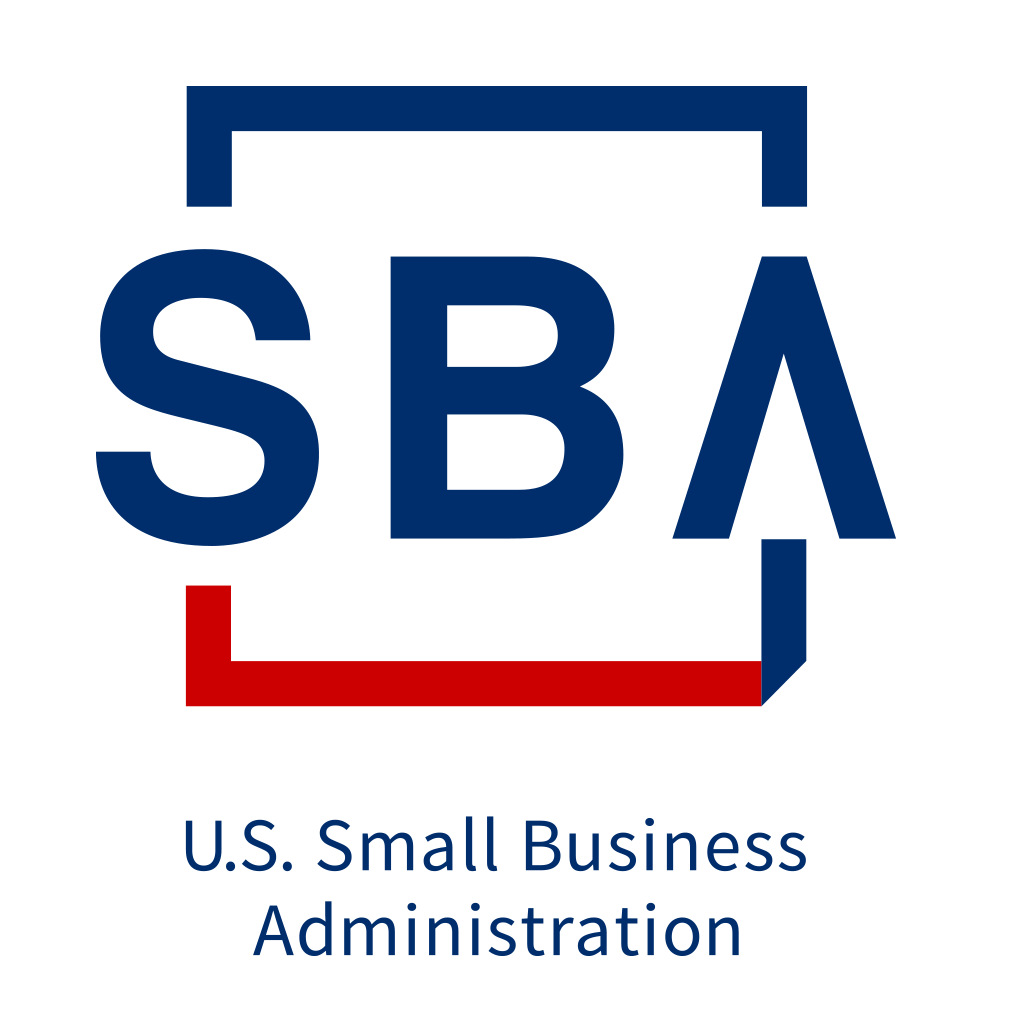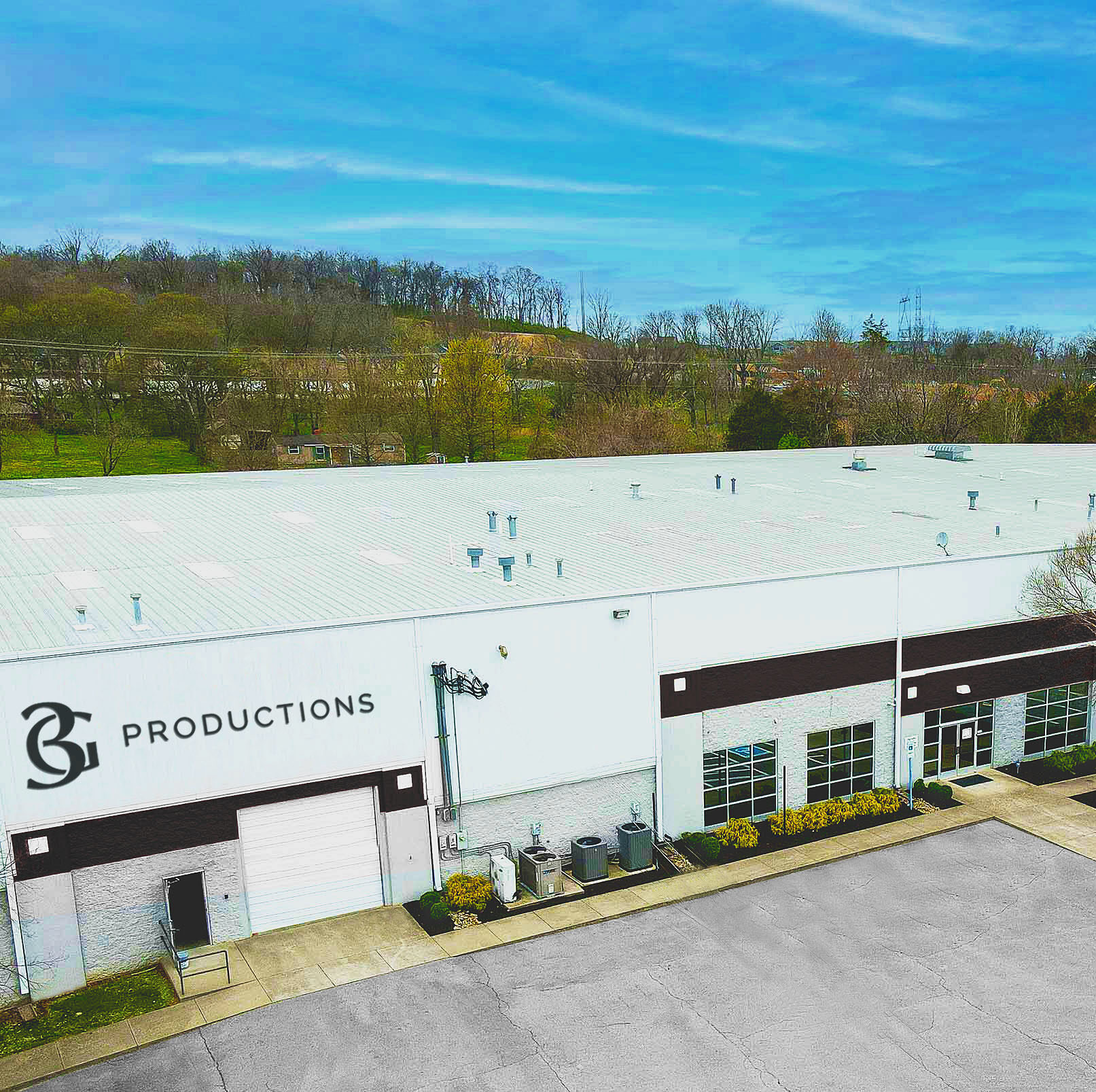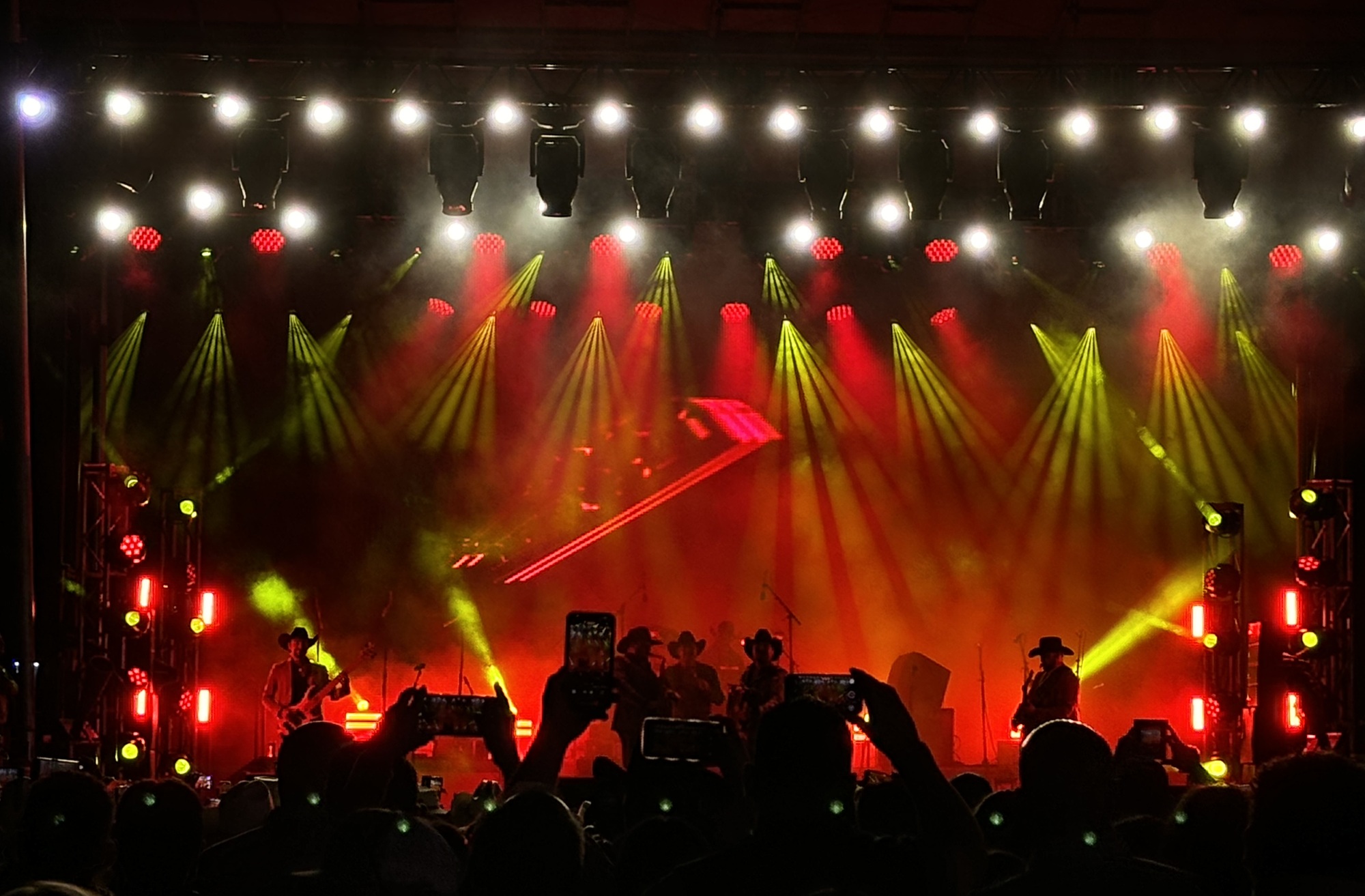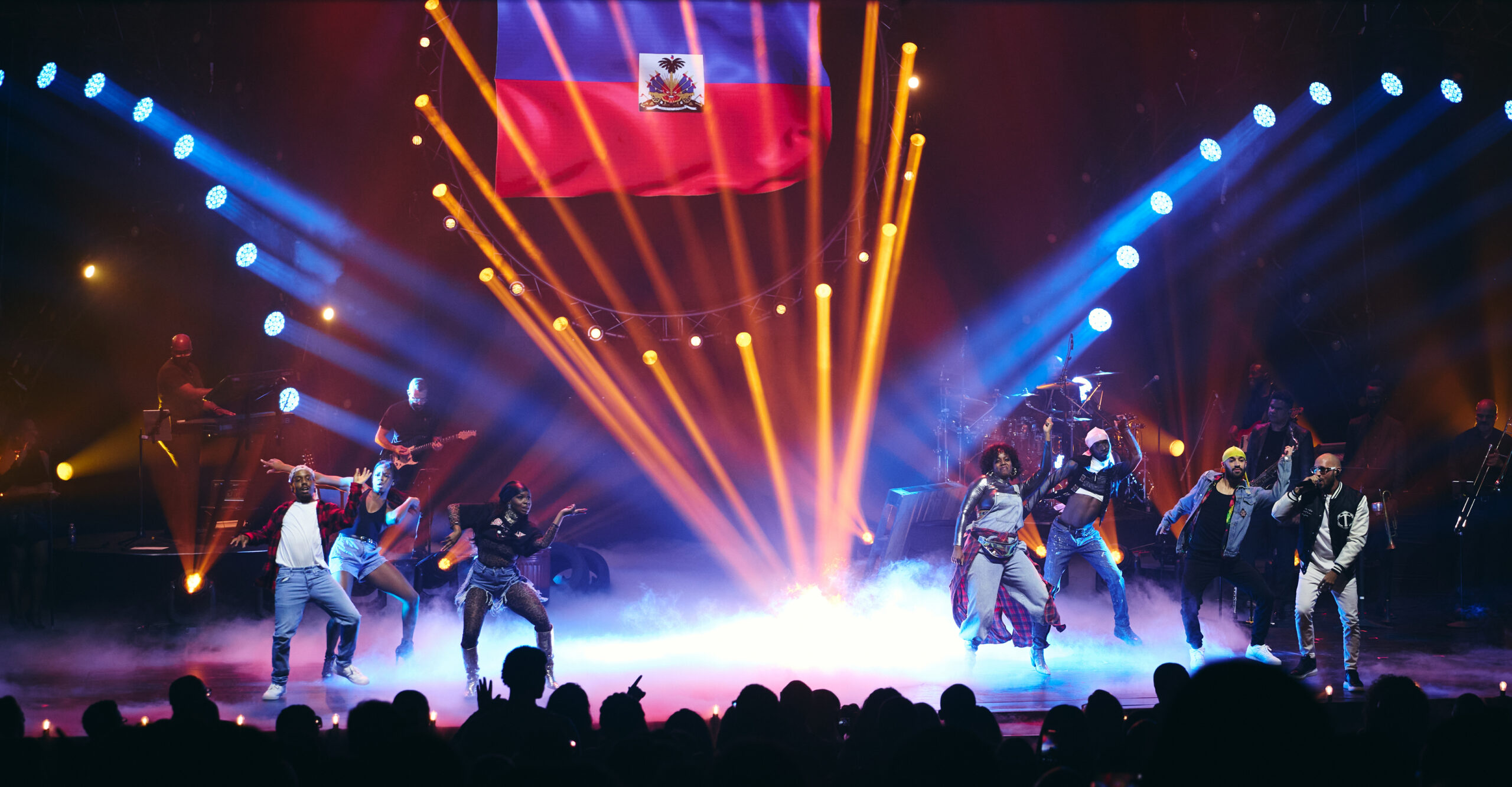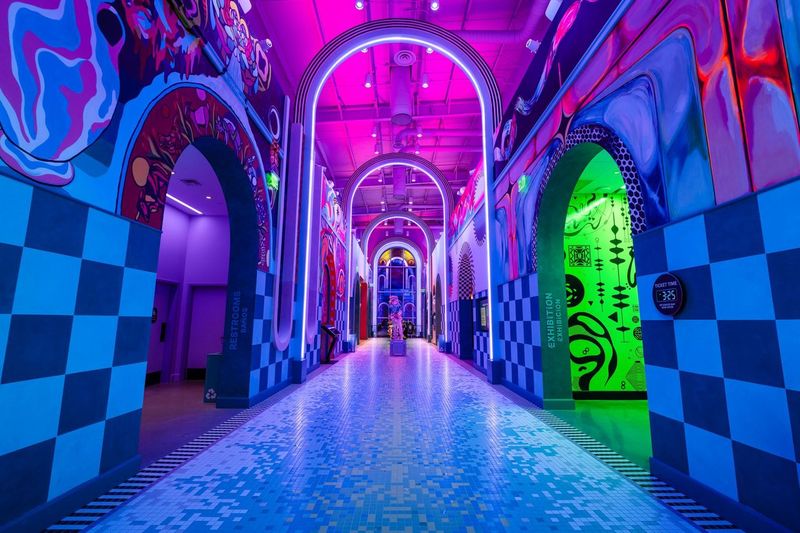
The building at 2103 Lyon Street had a very good run. Home to Moncrief Lenoir Manufacturing, it turned out an impressive array of metal fabrications for eight decades, until it closed in the 1990s. Today, the venerable structure has come alive again, only instead of producing metal products, it’s creating shiny new vistas of imagination for guests as the home of Meow Wolf’s Radio Tave.
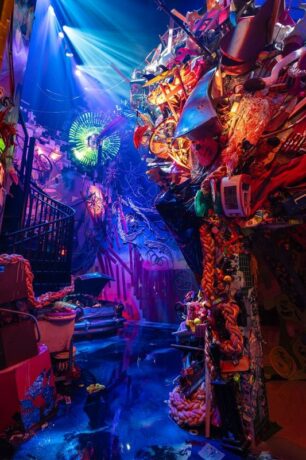 Occupying over 25,000 sq. ft. of the former warehouse, Radio Tave, which is Meow Wolf’s fifth permanent exhibit in the U.S., opened on Halloween. Like its four predecessors, the newest Meow Wolf site immerses visitors in a fantastical, mind-expanding universe formed through the fusion of imaginative scenic art, engrossing sound, and transformative lighting, which in the case of Radio Tave, was created by Chris Werner of Chris Werner Design, using a rig that featured 117 CHAUVET Professional fixtures, supplied by Vincent Lighting Systems.
Occupying over 25,000 sq. ft. of the former warehouse, Radio Tave, which is Meow Wolf’s fifth permanent exhibit in the U.S., opened on Halloween. Like its four predecessors, the newest Meow Wolf site immerses visitors in a fantastical, mind-expanding universe formed through the fusion of imaginative scenic art, engrossing sound, and transformative lighting, which in the case of Radio Tave, was created by Chris Werner of Chris Werner Design, using a rig that featured 117 CHAUVET Professional fixtures, supplied by Vincent Lighting Systems.
Every Meow Wolf exhibition reveals a different unfolding narrative. At Radio Tave, the story begins at ETNL, a fictional radio station that is removed from this world and magically absorbed into a futuristic intergalactic space. At first glance the lobby of this small West Texas station seems normal, but as visitors select different doors to open, they’re quickly transported to the strange new universe occupied by ETNL, where the visuals all around them transcend “normal reality.”
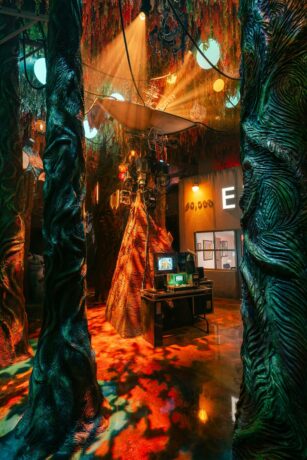 Werner and his lighting team (associate designer, Alex Stevens and programmer Stefan Zubovic, along with assistants Eva Hu and Bo Tindell) engender the unfolding of this ethereal narrative in light, often relying on colors to set the tone of the story.
Werner and his lighting team (associate designer, Alex Stevens and programmer Stefan Zubovic, along with assistants Eva Hu and Bo Tindell) engender the unfolding of this ethereal narrative in light, often relying on colors to set the tone of the story.
“The exhibition divides into ten ‘Anchors,’ each with its own Creative Director, visual style, and storytelling purpose. The distinctly different aesthetics of those Anchors opens the door to a lot of creativity in use of color and texture,” said Werner. “We aimed to craft a unique color palette for each area that would enhance the story, making sure that each one felt distinct and purposefully tailored to its narrative. In some spaces, color choices were influenced by brand style guides, but overall, we used color and temperature to reflect the ‘fantastical’ level of each location.
“For more ‘real world’ and Front-of-House areas, we leaned on white light and warm tones — 3000K to 4000K,” continued Werner. “As guests dive deeper into the otherworldly realms, colors grow more saturated and the shifts between them become more pronounced. Beyond this real world verses otherworldly framework, we always started with colors that best highlighted the artwork and scenery. We had been invited to the early color discussion with the show set design team. So, as a team, we were already in lock-step with what was needed to support the storytelling.”
Werner describes the 63 COLORdash Accent 3 compact 20W RGBA LED washes in his rig as his “go to fixture” for him in this project, saying they offered “punchy output, with adjustable, color-mixing in a fixture that we could hide almost anywhere without a need for additional power/data supplies.”
Also adding to the rainbow of colors at the exhibit were seven COLOR Strike M motorized strobe-washes, 26 Rogue R1 BeamWashes, and nine Maverick Force 2 Profiles. A collection of six STRIKE Array 2 blinders were used to accent dramatic moments, and six Ovation CW Ellipsoidals created bold shafts of light in the space. Speaking of the latter, Werner noted: “The ultra bright, cool white light for the Ovation units, revealed by haze stand in contrast to the warm colors illuminating the rest of the space.”
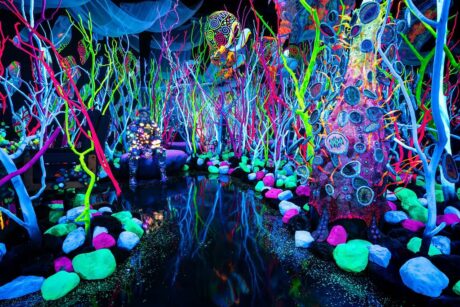 Responsible for “Show Lighting” for this project, Werner and his team took care of all lighting within guest-accessible spaces, covering FOH and exhibit areas while leaving exterior and back-of-house spaces to others. This require them to consult with participating artists on their pieces.
Responsible for “Show Lighting” for this project, Werner and his team took care of all lighting within guest-accessible spaces, covering FOH and exhibit areas while leaving exterior and back-of-house spaces to others. This require them to consult with participating artists on their pieces.
In Radio Tave, over 40 artists contributed murals, sculptures, dioramas, projections, music, and more. Managing the creative visions of such a large group of artists, while still maintain cohesion in the overall design was a challenge, but it was a rewarding one for the Chris Werner Design team.
Werner joined the Meow Wolf Radio Tave project as Show Designer at the start of its Design Development phase in 2021. He and his team delivered drawings, a detailed 3D Revit model, and specs for around 3,500 lighting fixtures. Once on-site, they scaled up, dedicating a presence for about four months to focus on commissioning, programming, and final handover.
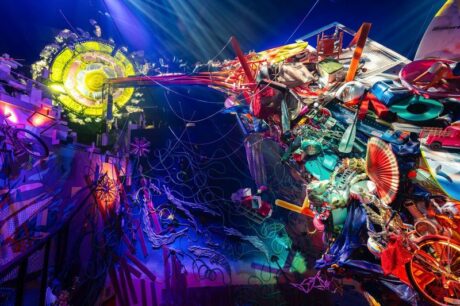 Completing a project of this scope required the work of many hands, and Werner is quick to credit the Meow Wolf and Vincent Lighting Systems teams. In the former, was Executive Creative Director Dale Sheehan, Senior Creative Director Spencer Olsen, Principal Creative Director Sarah Bradley, and Senior Creative Producer Susie Cowan, as well as the production design team (Chris Sousa-Wynn, Jaime Dimas and Rose Kryer), Art Director Desiree Soto-Vaughn, and Technical Directors Chris Soley, Stephen Tomlin, and Will Slayden.
Completing a project of this scope required the work of many hands, and Werner is quick to credit the Meow Wolf and Vincent Lighting Systems teams. In the former, was Executive Creative Director Dale Sheehan, Senior Creative Director Spencer Olsen, Principal Creative Director Sarah Bradley, and Senior Creative Producer Susie Cowan, as well as the production design team (Chris Sousa-Wynn, Jaime Dimas and Rose Kryer), Art Director Desiree Soto-Vaughn, and Technical Directors Chris Soley, Stephen Tomlin, and Will Slayden.
“We had great collaborators,” said Werner. “This was true within Meow Wolf as well as the incredible team at Vincent Lighting Systems in the persons of Account Executive Ron Kline, and Lighting Project Manager Bryan Mravec, as well as Elanor Eberhardt, Jimmy Mish, Tyler Ransdell, Gabe Kirik, Joe Bailey, and Maya Eberhardt.
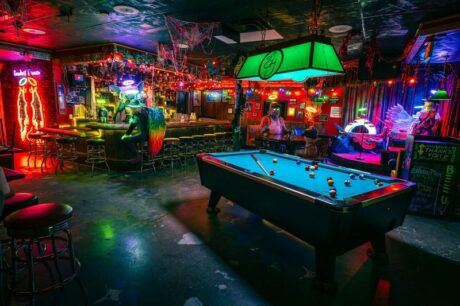 “Personally, the most rewarding part of this project has been our work in service to the story,” continued Werner. “ Designing light that propels guests on an adventure, rewards curiosity, or syncs with audio and video in real-time is what thrills us. Our team has roots in theater, and that love of storytelling through light is alive and well here at Radio Tave.”
“Personally, the most rewarding part of this project has been our work in service to the story,” continued Werner. “ Designing light that propels guests on an adventure, rewards curiosity, or syncs with audio and video in real-time is what thrills us. Our team has roots in theater, and that love of storytelling through light is alive and well here at Radio Tave.”
Further information from CHAUVET Professional: www.chauvetprofessional.com
